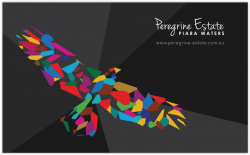Source: Global Construction Review
Still remember this article back in August last year?
With corruption scandals continuing to rock countries as diverse as Brazil, Canada and Malaysia, a coalition of more than 100 bodies worldwide has today published the first set of ethical standards for professionals working in land, property, construction, and infrastructure.
Binding everyone to transparency, integrity and lawfulness – from architects in Britain and appraisers in Japan to quantity surveyors in Russia and planners in Ghana – the standards are billed as universally applicable, and necessary to ensure greater professionalism around the world.
Organising the ethical surge, the International Ethics Standards (IES) Coalition believes a more ethical industry will help attract investment from pension and sovereign wealth funds, and “de-risk” construction markets around the world.
This new Coalition has the potential to transform the public perception of the entire real estate industry by creating and implementing international standards of ethical conduct. This, in turn, will help to enhance confidence and stability in the global market place, leading to improved ratings for property as an asset class.
— Robyn Waters, Past World President FIABCI
Globally, real estate assets reached a value of $217 trillion in 2015 which compares with global GDP of about $80 trillion, according to global property firm Savills.
“Ethics is central to being a professional,” said Paul Nash, President of the Chartered Institute of Building (CIOB). “Construction is a challenging environment and that will only increase as national players and agendas mix together on the international stage,” added Nash. “Creating one over-arching set of ethical principles brings improved clarity and transparency, helping to de-risk markets and ensure greater standardisation of professionalism across the globe.”
The ethical standards (see below) were written, following a three-month consultation, by a group of independent industry leaders and international ethics and compliance experts from Russia, China, France, the USA, Germany, Brazil, Japan, Malaysia, Canada and the UK.
The move makes good business sense, said Peter Bolton King, IES Coalition chair and global property standards director for the Royal Institution of Chartered Surveyors. “Ethical values act as an anchor to appropriate behaviours and research tells us that investment in real estate markets by pension funds and sovereign wealth funds is predicted to double over the next decade,” he said. “Therefore, publishing one set of International Ethics Standards helps to underpin existing codes of ethics and create an opportunity to strengthen the role these values play in the property industry.”
The standards:
- Accountability: Practitioners shall take full responsibility for the services they provide; shall recognise and respect client, third party and stakeholder rights and interests; and shall give due attention to social and environmental considerations throughout.
- Confidentiality: Practitioners shall not disclose any confidential or proprietary information without prior permission, unless such disclosure is required by applicable laws or regulations.
- Conflict of interest: Practitioners shall make any and all appropriate disclosures in a timely manner before and during the performance of a service. If, after disclosure, a conflict cannot be removed or mitigated, the practitioner shall withdraw from the matter unless the parties affected mutually agree that the practitioner should properly continue.
- Financial Responsibility: Practitioners shall be truthful, transparent and trustworthy in all their financial dealings.
- Integrity: Practitioners shall act with honesty and fairness and shall base their professional advice on relevant, valid and objective evidence.
- Lawfulness: Practitioners shall observe the legal requirements applicable to their discipline for the jurisdictions in which they practise, together with any applicable international laws.
- Reflection: Practitioners shall regularly reflect on the standards for their discipline, and shall continually evaluate the services they provide to ensure that their practice is consistent with evolving ethical principles and professional standards.
- Standard of Service: Practitioners shall only provide services for which they are competent and qualified; shall ensure that any employees or associates assisting in the provision of services have the necessary competence to do so; and shall provide reliable professional leadership for their colleagues or teams.
- Transparency: Practitioners shall be open and accessible; shall not mislead or attempt to mislead; shall not misinform or withhold information as regards products or terms of service; and shall present relevant documentary or other material in plain and intelligible language.
- Trust: Practitioners shall uphold their responsibility to promote the reputation of their profession and shall recognise that their practice and conduct bears upon the maintenance of public trust and confidence in the IESC professional organisations and the professions they represent.
Click here for the full list of current IES Coalition members.




